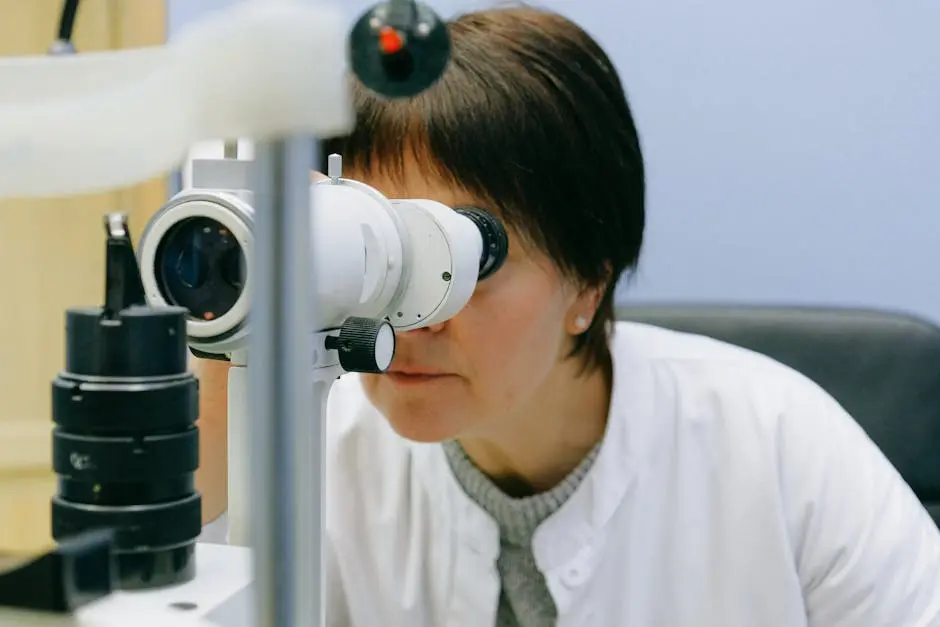
Cataracts can be concerning, affecting vision and quality of life. If you’re wondering how an eye specialist can help, you’re in the right place. In this blog, we’ll explore the role of these professionals in managing and treating cataracts, and what you can expect from the process.
What Are Cataracts?
Cataracts are cloudy areas that form in the lens of the eye, leading to a decrease in vision quality. They commonly occur in older adults but can affect anyone.
The natural lens of the eye works much like the lens of a camera, focusing light onto the retina for clear vision. When cataracts form, this clarity diminishes, as if looking through a foggy window. Over time, cataracts can worsen, significantly impacting one’s ability to perform daily activities, such as driving, reading, or recognizing faces.
Recognizing Cataract Symptoms
Common symptoms include blurry vision, glare sensitivity, and difficulty seeing at night. If you notice these changes, it might be time to see an eye specialist.
Often, people with cataracts may notice colors appear less vibrant or have a yellowish tint. Furthermore, dual or multiple images in one eye can be an early sign. Since these symptoms progress gradually, regular eye exams are essential for early detection and management of cataracts.
Cataracts do not cause pain or discomfort, which means individuals might overlook the symptoms during the early stages. However, an eye specialist’s assessment can provide clarity and guidance on how best to address these changes.
The Role of an Eye Specialist in Cataract Diagnosis
Eye specialists use a series of tests to diagnose cataracts accurately. These include vision tests, lens examination, and eye pressure tests.
During a comprehensive eye exam, an eye specialist may perform a slit-lamp examination. This is a detailed assessment that allows them to see the structures at the front of the eye under magnification, aiding in the detection of cataracts. Also, a dilated eye exam can help in thoroughly examining the retina and other elements in the back of the eye.
An eye specialist’s experience and knowledge enable them to determine the most appropriate course of treatment, beginning with tracking the progression of cataracts and offering non-surgical options whenever feasible.
Treatment Options for Cataracts
While early-stage cataracts may be managed with prescription glasses, more advanced cases often require surgical treatment to remove the cloudy lens.
Your eye specialist might suggest using strong bifocals, magnifying lenses, or improved lighting as temporary measures to alleviate cataract symptoms. However, as cataracts develop, surgical intervention becomes the most effective method for restoring vision.
Laser-assisted cataract surgery has become a widely accepted technique. This advanced approach allows for precision in breaking up the cloudy lens, making the surgery smoother and minimizing potential complications.
Understanding Cataract Surgery
Cataract surgery involves replacing the cloudy lens with an artificial one. It’s a safe and common procedure that an eye specialist can perform to restore clear vision.
The Surgery Center at Eye Associates of Winchester offers cataract procedures using the latest technologies. This includes the option of choosing premium intraocular lenses that correct various vision problems simultaneously, such as astigmatism or presbyopia, potentially reducing dependence on glasses.
The procedure is typically outpatient, and most patients experience significant vision improvement shortly after. With advancement in techniques, cataract surgery recovery is usually swift and with minimal discomfort.
Post-Surgery Care and Follow-Up
After surgery, your eye specialist will provide care instructions and schedule follow-up appointments to ensure proper healing and adjust any vision aids if necessary.
Patients may expect a brief period of mild sensitivity or itchiness in the treated eye. Specialists recommend avoiding strenuous activity and eye-rubbing to ensure optimal healing. Additionally, protective eyewear may be prescribed to safeguard the eye during recovery.
Eye specialists monitor the healing process closely, often within a week after surgery. They check for any signs of complications and confirm that the lens is settling correctly. Long-term follow-up visits help in managing overall eye health and prevent further issues.
Final Thoughts
In summary, an eye specialist plays a crucial role in managing cataracts, from initial diagnosis to surgical intervention if needed. With their expertise, they guide patients through personalized treatment plans to help restore clear vision. If you or a loved one is experiencing symptoms of cataracts, consulting an eye specialist is a vital step toward improved eye health.

